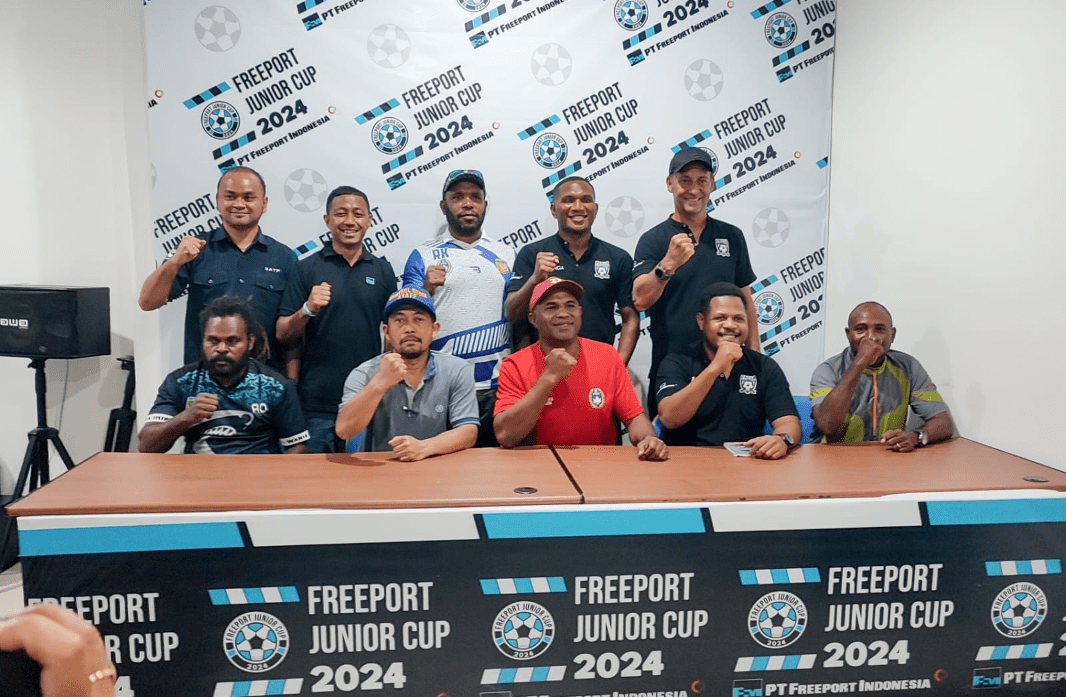Football involves many parties in its implementation. Starting from games that require match equipment such as players, referees and organizing committee. Not to mention when talking about football at championship level which refers to professional rules. Football development is no different. The progress and development of football in an area is not just the responsibility of one party, but requires other parties for its implementation. Other parties who can be called stakeholders have an equally important role in advancing football.
Central Papua Province has the seeds for superior football athletes in the future. For this reason, PT Freeport Indonesia as one of the stakeholders in Central Papua took the initiative to hold a football competition for children in Central Papua called the Freeport Junior Cup. This competition was attended by six children’s football teams from all regions of Central Papua. As explained at the beginning, holding a championship certainly requires another party. In this case, PT Freeport Indonesia collaborated with the Mimika Regency Football Association to provide the organizing committee and match equipment.
The Freeport Junior Cup was held at the Mimika Sport Center, the training center of the Papuan Football Academy football school. The aim of holding this championship is to provide a forum for professional matches that can be learned by players who are members of clubs as championship participants. It should also be noted that football matches do not only require abundant talent. However, intelligence in understanding the rules and games also needs to be applied in the field. Not to mention the mentality that will be tested when you have to face opponents and their strategies.
PT Freeport Indonesia and the Mimika Regency Football Association as well as sponsors from Central Papua Province want children’s football talents to be facilitated from an early age. Starting from providing football facilities which are said to be adequate, namely the Mimika Sport Center. Competitive, professional and sustainable competition can also support the increase in children’s football talent in Central Papua. Even the Papuan Football Academy said that the Freeport Junior Cup would help them select talented players who would then be offered to join the football school they manage.
The hope for all parties involved in the implementation and also the Freeport Junior Cup participants is that this championship can continue for a certain period of time. In the future, they also want more clubs to participate in the championship and not only those from Central Papua Province, but also all provinces in Papua. After the championship, it is hoped that there will be further stages for the players involved, such as joining a football school to be trained, then when they reach maturity they can be launched into professional players who compete in national and international level competitions.


